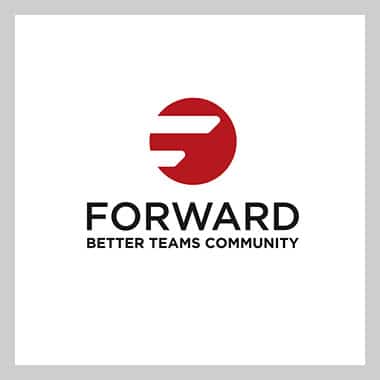Your Team’s Trust is Strong!
While trust itself is technically invisible, the symptoms and results of trust are very observable and tangible.
Here are 10 signs your team has high trust:
1. Everyone openly engages in your meetings.
The team is quick to collaborate and share ideas with each other. This interaction feels natural and relaxed. The team easily launches into meaningful discussions where everyone is heard. No one holds back.
2. Team members respectfully disagree and challenge each other.
In almost every meeting, you observe team members openly disagree and share different points of view. When this occurs, team members may be passionate but no one seems angered or offended. These “challenges” are accepted as a healthy way to ensure checks and balances before making decisions.
3. The team is comfortable sharing thoughts and ideas that are different from the leader.
When the leader suggests an idea, the team doesn’t automatically just say “yes” without asking questions and sometimes sharing alternative points of view. Team members feel safe to openly disagree with the leader, who in turn encourages different perspectives.
4. The team laughs often and enjoys each other.
Teams who have high trust “let their hair down” and have fun. They are comfortable and relaxed. Teams with high trust often share inside team jokes built on past history.
5. Team members actively seek feedback from each other.
When teams trust each other, they value the input from each other and ask for it regularly. They want to develop and believe constructive feedback will be shared from a positive intention. Feedback about the work and the relationship are requested.
6. Team members have vulnerable moments – exposing mistakes or weaknesses.
Individuals are willing to admit they were wrong or unsure. Because they trust each other, there is no shame in this and this humility is respected.
7. Team members ask for help when they are stuck or overwhelmed.
Team members and the leader seek advice, support, and fresh perspectives from each other. They value the ideas and support shared from each other, and seek to offer help when they can see a team member may need it.
8. Team members speak positively about each other.
They stand behind each other and are supportive in each other’s absence. They know that their team will defend them and speak positively about each other in their absence. If there is an issue, this is addressed directly, never in whispered conversations.
9. They genuinely celebrate each other’s efforts and successes.
Each person wants success for the other. Instead of competing against each other, they cheer each other on.
10. They share personal information with each other.
When trust is high, teams are willing to disclose more about their values, interests, and family life. Team members get to know each other beyond work and develop friendships that extend beyond the boundaries of the office.
Which of these signs do you see on your team?
Building trust takes time and is an ongoing process. Moreover, if you’d like more ideas on how to build trust with your team check out more ideas at better-teams.com.
About the Author: Leigh Ann Rodgers, Founder of Better Teams and Forward, is an IAF Certified Professional Facilitator with 20 years of experience in the human development field. Leigh Ann is a skilled meeting facilitator, trainer, and coach working across the globe to help leaders cultivate teams that are happy and high-performing.
Learn. Share. Practice. Move FORWARD. Join the Better Teams community, FORWARD, to network and grow with some of the most experienced professionals in the field of team building and facilitation. LEARN MORE

